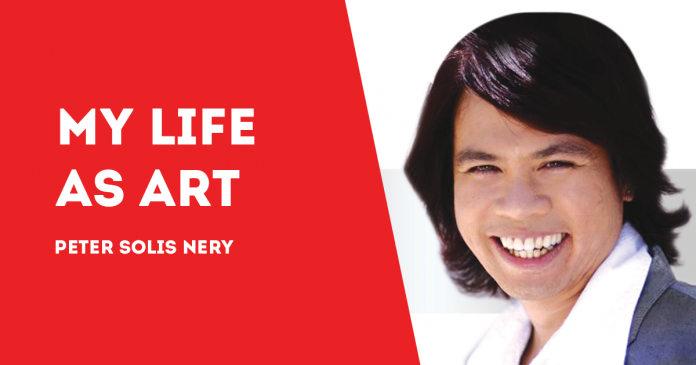
JUST before my 52ndbirthday, I was talking to a boy who wanted to have a nose job. This was the boy who was willing to be my companiable boy toy if I paid for his surgery. Nice deal, huh?
Now, that made me think. Should I have a facelift myself?
On the other hand, if the facelift would cost me a million pesos (some $20,000), would my future boyfriend prefer that I look younger, or would he rather have a million pesos in his bank account?
Thus, my Facebook post: “PUMILI KA: A.) I look younger, or B.) Bibigyan kita ng sarili mong bank account?”
As expected, a lot of people posted their unsolicited opinion. Or, maybe, when you post something like this, it’s really just an unwritten contract that solicits opinion, even if all you wanted was just the laughing emojis.
So, I read the comments, reflect, and wrote this:
*
The Filipino Reading Comprehension and Problem-Solving Skills
By Peter Solis Nery
It is my opinion that (young) Filipinos have very poor reading comprehension and poor problem-solving skills. They also have poor test-taking skills that result to poor test scores making sure that we are in the top bobo list of the world.
*
Firstly, in a multiple choice question A & B, bakit may sagot na C, bakit may D? Di ba katangahan ‘yan?
Can you really beg the question in a test?
May karapatan ba tayo na ibahin ng choices? Bakit — are we so privileged na tayo palagi ang nasusunod? Mas matalino pa tayo sa tanong?
*
Hindi kasakiman ang maghangad ng both (slight greediness lang), pero kabobohan ang sumagot ng “both” kung wala ito sa choices. Itanong n’yo sa Professional Regulation Commission (PRC), sa mga teachers na kumuha ng units sa Test, Assessment, and Evaluation, at sa lahat ng stupid DepEd modules.
*
At please, ‘wag akong idaan sa “think outside the box!” Hindi po ‘yan ang meaning ng phrase. Kung talagang you are thinking outside the box, intindihin mo ang tanong in a context that is outside the box!
*
Let’s look at the reading problem. First level lang po ang literal reading. May mas mataas na level ng interpretation and contextualization. Ano ba ang contexto ng tanong? Bakit ganito ang choices? Dito ka ngayon mag-think outside the box, kung gusto mo.
*
Puede ba sa usapan na ito na walang pera sa bank account? In real life, puede bang walang laman ang bank account? Di ba medyo kabobohan naman o katangahan o walang kaalam-alam sa buhay ang mag-imagine ng ganyan na situation?
*
But who can blame the young Filipinos? Maraming paasa sa buhay nila, maraming pangako ang mga politico na hindi naman natutupad. Politicians ang tipong mangangako ng bank account na walang laman. (P30M na tulay pero kinupit na ang P27M. Walang laman ang bank account! Walang himala!)
*
This is so Filipino! Kasi, sa ibang countries, the bank account will always have money in it, otherwise, they wouldn’t even mention it!
Sorry, but other parts of the world will say na kabobohan ang bank account na walang laman. Imagine having to pay fees and penalties for not maintaining the daily balance. Kina-cancel po ang bank account na walang laman!
*
Reading comprehension pa rin: sa contexto ng tanong and choices, Paano mangyayari ang choice A?
If you are thinking at all (and outside the box, if you are not ordinarily fully exposed to the ways of the world), hindi mo ba iisipin ang cosmetic surgery?
*
So, kung gagawa ng test choices, hindi ba logical na magkalapit ng value o halaga ang bank account at cost ng cosmetic surgery para maganda ang tension? Hindi porke’t wala sa words ng situation, wala na sa problem. ‘Wag po masyadong literal sa test.
*
In a way, kasalanan din ito ng PRC at test makers na ginagawang comprehension question ang dapat sana’y knowledge question. May mga tarantadong test makers kasi na ginagawang language test ang science question.
*
Regarding “thinking outside the box,” doon ako sa practical. We have always been taught to value beauty of youth, and not to be greedy with money. These are also the moral traditions of our Philippine society.
Well, eff that! Thinking outside the box as a 21st century problem-solving skill means going outside, breaking away from these value systems. It means choosing options that will help us survive in the 3rd millennium where money is — sadly, but truly — key.
*
I don’t like to explain the question. But look at it again with a different eye. Imagine kasi who is asking this question. Imagine who is being asked. Ano ang relationship ng nagtatanong sa tinatanong? Bakit ka sumasagot?/PN





